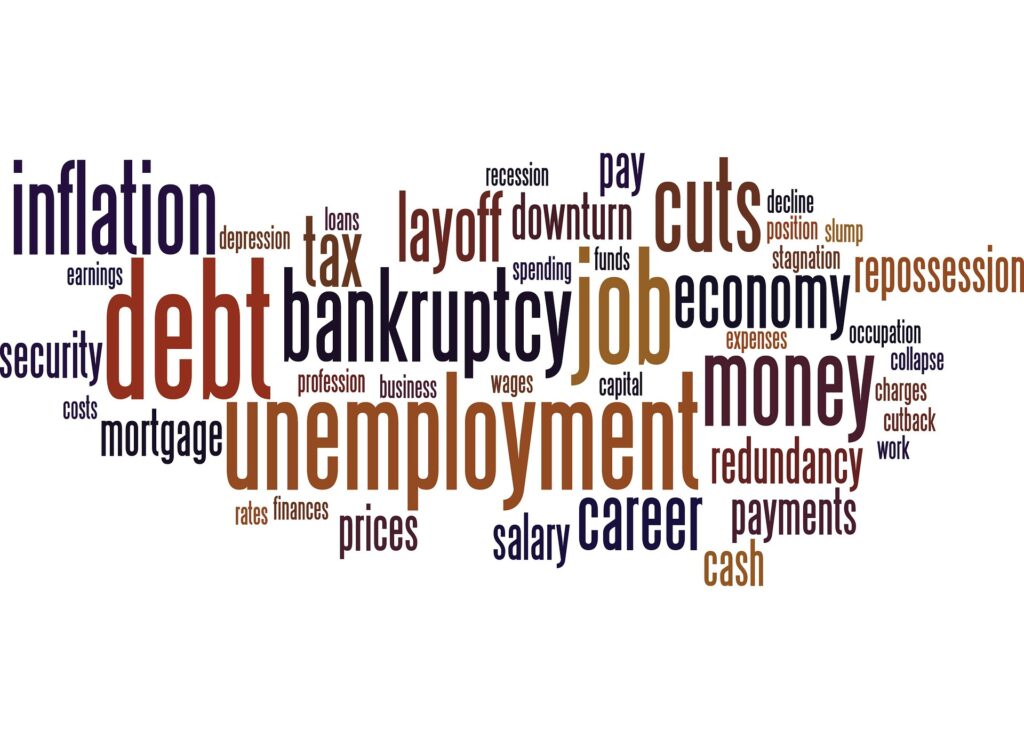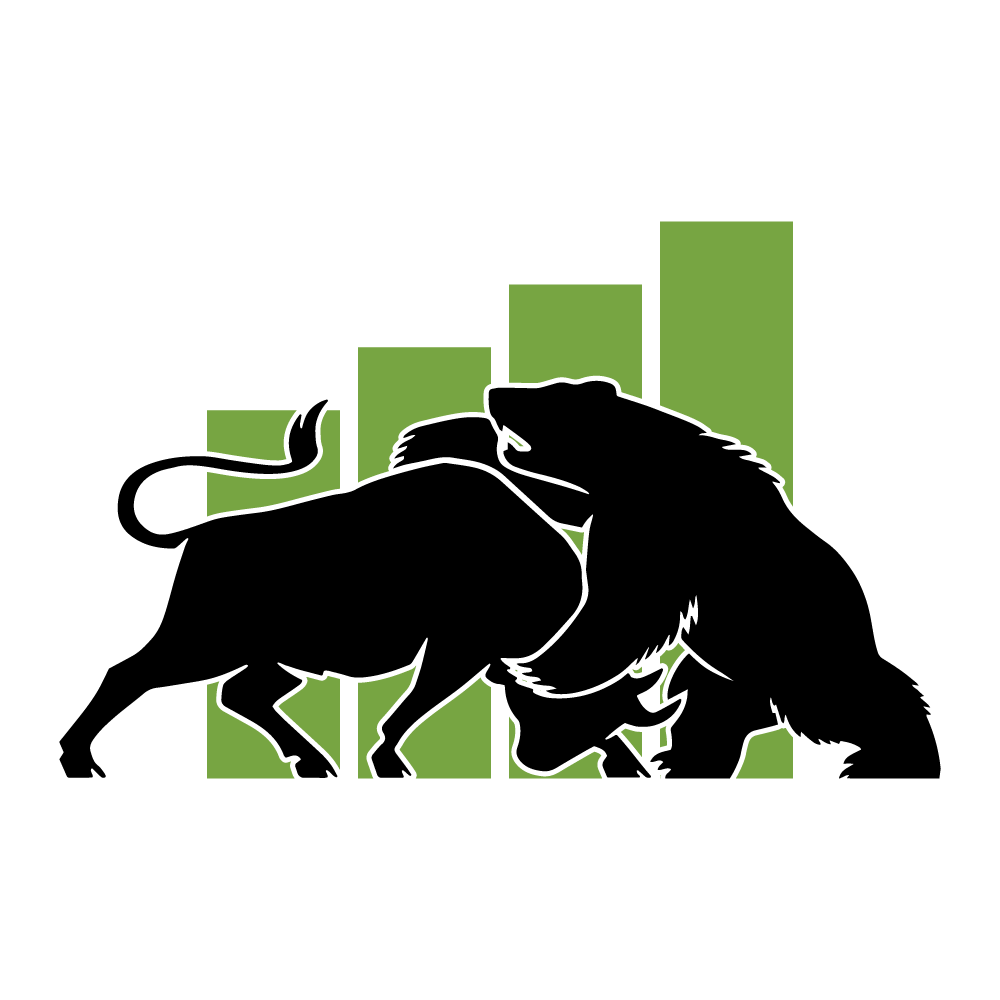This word “recession” is thrown around from time to time, which is sometimes used to create fear and emotions. This type of emotion may not only effect the stock market greatly, but the whole economy.
Before we decide what exactly is going on in the market, we have to know what a recession actually is.
What Is a Recession?
A recession is a specific period of significant decline where activity in the economy typically slows down. Traditionally, recessions are defined as two consecutive quarters of negative economic growth.
Although, the National Bureau of Economic Research (NBER), a nonpartisan organization that facilitates economic decisions, officially decides when a recession is. Some see the NBER as essential and some see it as concerning that a private organization makes decisions as opposed to the people themselves.
Regardless, experts usually analyze a nation’s economy, unemployment, gross domestic product (GDP), retail sales, and more to declare a recession.

Despite all of the numbers, statistics, and analysis, recessions can be confused with depressions, often by younger traders.
Recession VS Depression
While recessions and depressions often have comparable explanations, there is a difference in definition and impact.
According to the National Bureau of Economic Research Business Cycle Dating, “A recession is the period between a peak of economic activity and its subsequent trough, or lowest point.” Recessions usually last for months. Typically unemployment rises, GDP declines, the stock market falls, and more affects are often seen.
The same affects are seen with a depression, except a depression is much worse and longer lasting, causing a longer economic recovery.
Causes of a Recession
Recessions may occur because of many reasons. Most recessions result from more than one cause.
Inflation
First, let’s understand what inflation is. Inflation is when prices increase, decreasing the value of money.
So, if 1 dollar used to buy one cheese stick, but then inflation occurs and the cheese stick becomes 2 dollars, that 1 dollar cannot buy that cheese stick because the prices of goods have gone up but the dollar stays the same, decreasing the buying power of the dollar. But what actually causes inflation to occur?
There are a few ways that may cause inflation.
The first way we will talk about is pressure on businesses. Let’s say that for whatever reason, maybe workers wanting higher wages, or the company not being able to afford to produce products, the business is then forced to increase prices for their product.
This increase in prices lowers the buying power of the dollar that the consumer uses to buy the businesses’ product. So, consumers then pay more for the same product, because the company has to spend more money to produce that product.
Another way may be from the government printing money. If the government increases the amount of money in the economy, then the value of money decreases.
This is a supply and demand scenario because while there is still the same amount of products, there is more money.
The third way we will talk about is higher demand. Just like the stock market, when more people buy the stock, the less shares there are, so the price of the stock rises. Supply and demand.
If a company makes a product, and there are more people willing to buy the product than there is of the product, then the price of the product may rise, as there is a bidding war.
Surprising Situations
Recessions can also occur from surprising events, like war or the Coronavirus pandemic. Not only did the virus cause panic in the stock market, causing it to fall for quite some time, it shut down economies around the world.
According to Brookings.edu, “From the most recent peak in the fourth quarter of 2019, the United States experienced two consecutive quarters of declines in GDP.” Here, we can see a picture of the Dow Jones Industrial Average (DJI), during the Covid-19 pandemic.

The Dow fell rapidly for several months, causing selling, shorting, and then more selling. The pandemic was a catalyst for a sharp economic decline.
This economic decline not only affected the United States’ GDP, but also the U.S. unemployment rate.
In the United States, more than 50 million residents lost their work because of the pandemic and the problem of food insecurity had increased. To clarify, unemployment rate is the amount of those who do not have a job but are looking for one. That means that those people could not find anywhere to work, leading to less/no income.
Emotion
Emotion, one of the biggest factors not only in the stock market but in all economies, can be a cause or contributing factor to a recession. Much fear of a recession can actually cause the recession itself.
For example, if there is another virus that hit the news and is being talked about a lot, there may be fear that the virus will cause more lockdowns, economic shutdowns, and economic decline like the Covid pandemic.
This emotion of fear may cause traders to sell their positions and short stocks, driving the market down.
How to Prepare
There are many challenges that may arise out of a recession like job loss, pay cuts, lower sales, expenses, and even searching for a job may be more challenging. There is also often a feeling of disinterest in the stock market. So what can people do to prepare for a recession?
For everyday workers, creating an emergency fund,
For business owners, there may not be enough funds to borrow, or do anything for the company. A company can also freeze hiring, adding to the unemployment rate.
If the business sells products, the business may decide to lower the quality, quantity, etc. of its product and still sell it for the same price. This effectively lowers cost of production while increasing profits.
Be careful with this scenario, as customers may notice a decrease in quality or another aspect and not purchase the product.
For investors and traders, diversification, not trading, creating an emergency fund, buying defensive stocks, are all valid ways to prepare and manage a portfolio with a recession.
Defensive stocks are stocks that generally hold their price throughout a market. It doesn’t increase a lot and it doesn’t decrease a lot.
Investors hope that a defensive stock is a good fallback stock where it will always to return consistent profits, (dividends, earnings), no matter how the market behaves.
Although, defensive stocks are less volatile, leading to slower gains, so investors may make more profit from something like dividends.
A Risk: Defensive stocks can lead to unfavorable market entries.
Learn more about defensive stocks and what to do in a bear market in my free course by clicking here.
With all of this careful and don’t trade advice, why do some of the most famous traders and business owners brag that they will profit during a recession?
“In times of recession there are massive opportunities and fortunes to be made, so for new up and coming entrepreneurs, this is the time to go and start a business.” Richard Branson, entrepreneur.
“Never miss out on an opportunity like a good recession.” Jack Welch, American business executive.
Many believe that while the economy falls, the stock market falls, and people panic during a recession, it is the best time to start a business and invest in yourself. There is also always hope in people that the economy will bounce back, and it always has in the United States so far.
Overall, there are many causes of a recession, many ways to prepare, and many possibilities. Experts do not agree on everything, so do your diligence and understand the risk if you are to trade.
